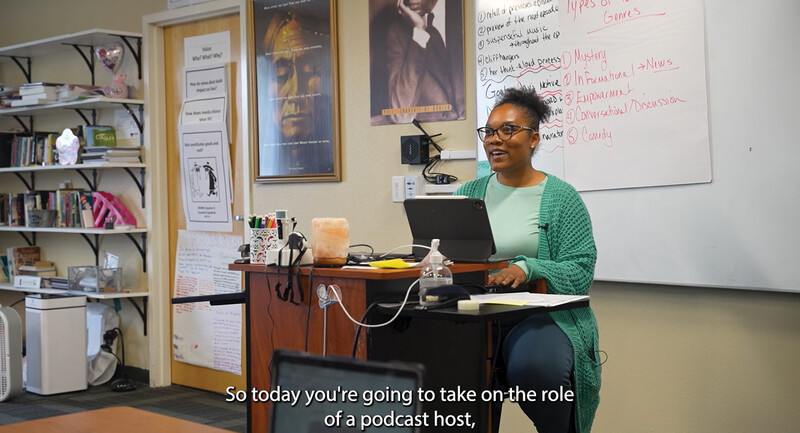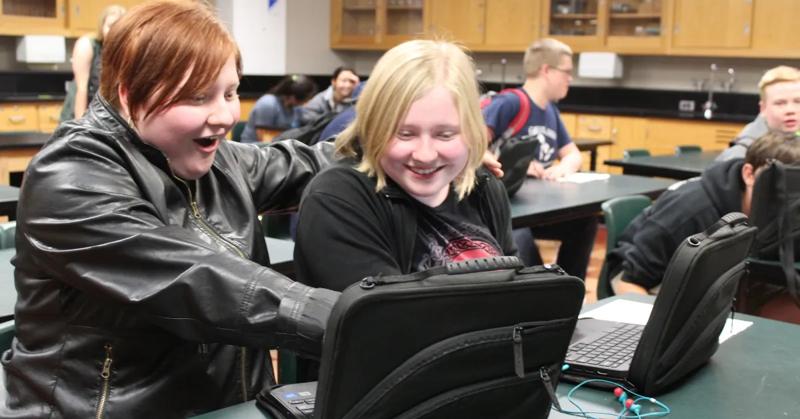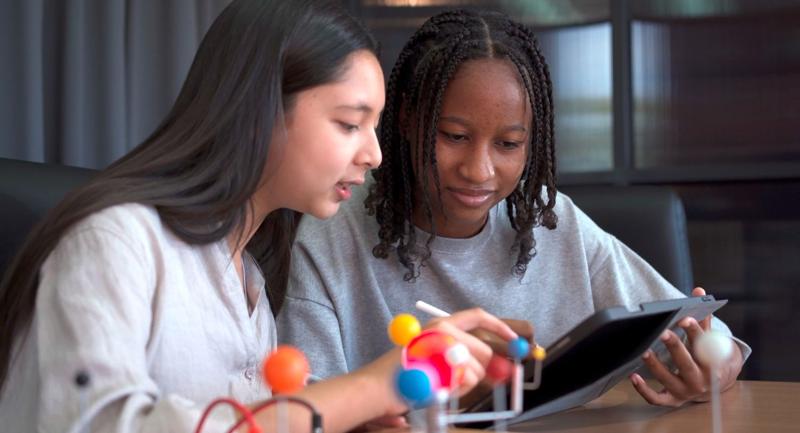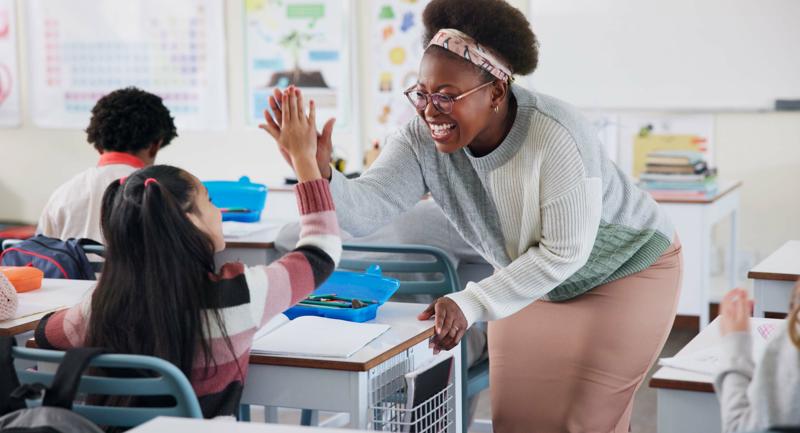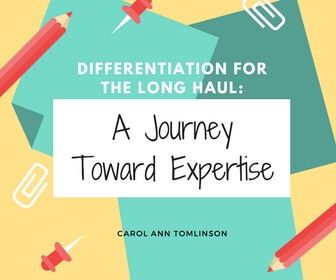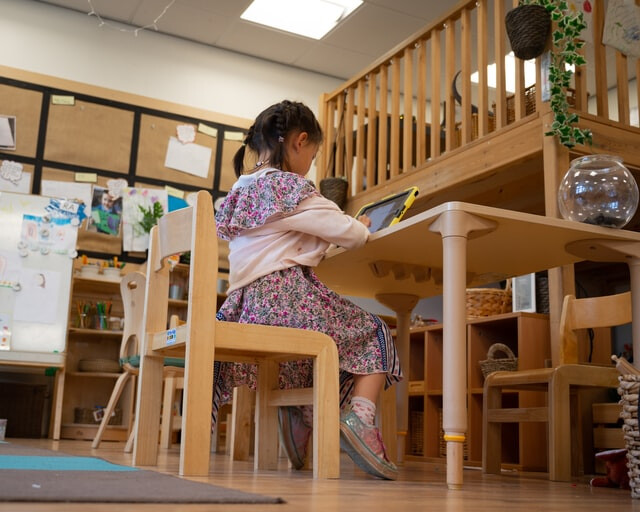Literacy tasks—reading, writing, speaking, listening, and viewing—have long been recognized as powerful tools to accelerate learning in any subject area. But to do so, tasks must encourage students to move beyond simply recalling facts or replicating information. As Nancy Frey and Douglas Fisher write in their latest EL column, “The full potential of literacies cannot be reached if students are limited to surface-level knowledge acquisition.”
How, then, can educators make the most of literacy tasks? Well-designed tasks, write Fisher and Frey, spark creativity, urge students to problem-solve, and encourage them to consider new perspectives. This month’s Show & Tell video takes viewers inside a high school classroom as students embark on a narrative journey, delving into podcasting as a means to develop their literacy skills.
What Is an Open Task?
“Today, you're going to take on the role of a podcast host,” English teacher Marnitta George announces to her classroom, “and deliver an engaging story for us.” In the video, George comments how she can see her students’ faces light up as she continues introducing this complex literacy task.
Previously, George’s students had analyzed episodes from the investigative journalism podcast Serial and had researched various topics of their choosing. George now invites them to picture themselves as emergent podcasters, transforming their research topics into audio narratives while building a listenership from scratch. “Let’s think about your role,” she says. “Think about that very first episode—those first few minutes of that first podcast that draws your audience in and makes them want to continue listening . . . I just want you to write up those first few minutes worth of a script.”
The literacy task George is describing is what Fisher and Frey call an “open” task—that is, “one that provides multiple entry points and pathways to successful completion.” There’s no one right way to capture their audience’s attention; instead, students must consider multiple ways their script can hook listeners and make decisions about which narrative approach they think will be most effective.
Maximizing the Potential of Literacy
In addition to shifting from “closed” to “open” tasks, Fisher and Frey describe three other shifts educators can make to transform student literacy: moving from information to understanding tasks, from telling to asking tasks, and from procedure to problem-solving tasks. What these shifts have in common is an emphasis on developing students’ critical thinking.
Literacy tasks—when well-designed—don’t just hone reading, writing, speaking, listening, and viewing skills, but also further critical engagement.
As Fisher and Frey explain, tasks that emphasize understanding “ask students to apply critical thinking skills to identify relationships and make connections among content.” Inquiry-based tasks prioritize questions (How will you capture your audience's attention immediately? How will you introduce a story?) to provoke discussion and in-depth exploration of topics. And problem-solving tasks encourage critical thinking by giving students opportunities to examine and test out various routes toward approaching a problem.
After George finishes introducing the podcast lesson, she has students share their initial ideas aloud. In their discussion, we can hear the first steps of a transformation taking place as students shift from simply noting a source from their research to crafting a narrative out of it. “For my project, based on false memories, I found this one source that I thought would work really good,” says one student. “It's an article called ‘Creating False Memories’ by Elizabeth F. Loftus. She went into a series of accounts, discussing cases she found where patients were going into therapy and those therapists were implanting false memories.”
As these high school students begin to envision themselves as podcasters, literacy becomes multidimensional, engaging them through reading, writing, speaking, and listening—and their stories start to unfold.
George's podcasting lesson underscores how literacy tasks—when well-designed—don’t just hone reading, writing, speaking, listening, and viewing skills, but also further students’ critical engagement. By embracing strategies like those Fisher and Frey describe, educators across disciplines can unlock the full potential of literacy, transforming it into a tool to deepen learning.
 Curriculum Design & Lesson Planning
Curriculum Design & Lesson PlanningShow & Tell / Literacy Tasks to Elevate Thinking
2 years ago
